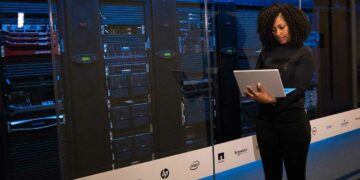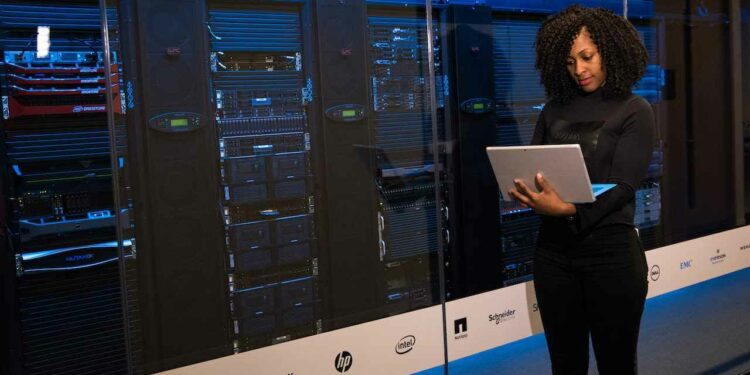Data centers are a vital part of the modern world. They allow businesses to store and access information quickly and efficiently.
However, running a data center can be difficult, especially if you are not familiar with the best practices for doing so.
This blog post will discuss five tips for better data center management, from planning your operation thoroughly from the start to utilizing essential tools like a data center UPS. By following these tips, you can optimize your data center and improve your business’s bottom line.
Table of Contents
1. Make a Plan
Any data center manager will tell you that the key to success is organization. With so many different types of data to keep track of, it can be easy for things to quickly get out of control. One way to help stay on top of things is to make a plan.
By taking the time to map out what needs to be done, when it needs to be done, and who is responsible for doing it, data center managers can help ensure that everything runs smoothly. In addition, making a plan can also help identify potential problems before they occur.
By taking the time to plan ahead, data center managers can help avoid costly mistakes and keep their operations running smoothly and MES helps users on the floor manage.
2. Monitor Capacity and Usage
Data centers are the backbone of any modern organization, so it’s critical that they are well-managed and operated efficiently. Capacity planning is a key part of data center management, and it involves understanding how much computing resources are required to support the workloads.
Often, capacity planning is done on a yearly basis, but it’s important to monitor capacity and usage on a more regular basis to ensure that the data center can meet future demands. Additionally, monitoring capacity and usage can help identify underutilized resources which can be reallocated to other workloads or projects.
By regularly monitoring capacity and usage, data center managers can improve their overall management of the data center and ensure that it remains efficient and effective.
3. Stay Cool
Any data center manager knows that one of the most important aspects of data center management is maintaining a consistent temperature. Not only do fluctuations in temperature make it difficult to keep equipment operating at peak efficiency, but they can also cause data loss or corruption.
As a result, investing in climate control for your data center is an essential part of data center management. By keeping the temperature and humidity at a consistent level, you can minimize the risk of equipment failure and ensure that your data remains intact.
In addition, climate control can help to reduce energy costs by keeping your equipment from overworking to compensate for extreme temperatures. As a result, climate control is not only good for your data center, but it’s also good for your bottom line.
4. Control Power Consumption
Data centers are the backbone of the modern world, housing the servers that power everything from email to social media to online shopping. Unfortunately, these data centers can be enormous energy hogs, often consuming as much power as a small city. Not only is this environmentally damaging, but it also drives up operational costs.
As a result, controlling power consumption is a key priority for data center managers. One way to achieve this is through the use of virtualization, which allows multiple server instances to run on a single physical machine.
This can lead to significant power savings, as well as improved utilization of hardware resources. In addition, data center managers can use power-management tools to monitor and optimize energy usage. By controlling power consumption, data center managers can help improve the efficiency and bottom line of their operations.
5. Use the Right Tools
Data center management isn’t just about hardware and software—it’s also about using the right tools to effectively manage those resources. There are many different kinds of tools available, ranging from monitoring and performance optimization software to powerful automation tools that can help with capacity planning, resource utilization, and more.
For example, a data center UPS (uninterruptible power supply) will protect your servers in the event of a blackout or power outage, as it works as a backup battery which allows your system to shut down properly. This protects both your client’s data and your organization’s hardware.
By investing in the right tools, data center managers can ensure that their data center remains reliable and efficient.



















